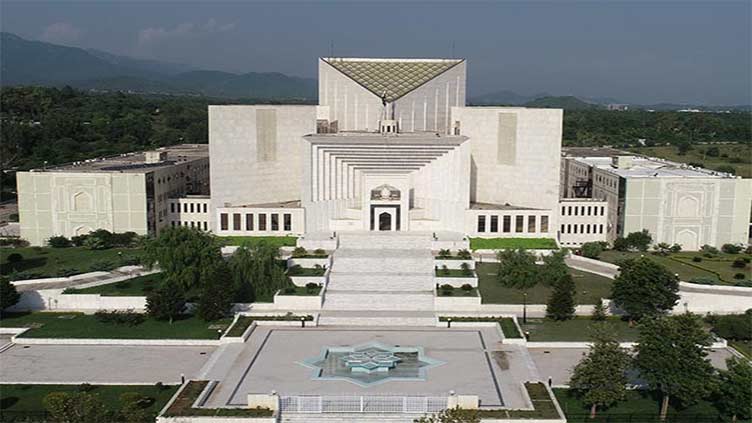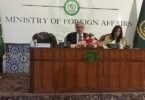ISLAMABAD (INP): In a 2-1 majority verdict, the Supreme Court (SC) on Friday ordered to restore the corruption cases against public office holders that were withdrawn after amendments were made to the country’s accountability laws.
The reserved verdict was announced by a three-member bench comprising Chief Justice of Pakistan (CJP) Umar Ata Bandial, Justice Ijazul Ahsan and Justice Syed Mansoor Ali Shah on PTI Chairman Imran Khan’s 2022 petition challenging amendments made to the accountability laws.
CJP Bandial and Justice Ahsan declared Imran’s plea to be maintainable while Justice Shah disagreed with the majority verdict, according to which not just the corruption cases but also the inquiries and investigations were directed to be restored. The bench announced the verdict by 2-1 majority with third memeber of the bench, Justice Mansoor Ali Shah, writing note of dissent.
The bench appeared to be visibly divided over the issue during 53 hearings on the former prime minister’s petition. Justice Shah consistently questioned the maintainability of the petition, whereas CJP Bandial and Justice Ahsan remained critical of some of the amendments made to the NAB law by the Pakistan Democratic Movement government. The court also declared some amendments to the accountability laws to be contrary to the Constitution. These included one which limited the National Accountability Bureau’s (NAB) jurisdiction to cases involving over Rs500 million and one which allowed the accused to claim the amount of plea bargain deposited after being acquitted.
The court also declared the verdicts issued by the accountability courts in light of the amendments made to the laws were declared null and void. The court directed NAB to send the record to the relevant courts within seven days. In June 2022, the former premier had moved the apex court against amendments made to the National Accountability Bureau (NAB) ordinance under the National Accountability (Second Amendment) Act 2022.
The amendments made several changes to the National Accountability Ordinance (NAO) 1999, including reducing the term of the NAB chairman and prosecutor general to three years, limiting NAB’s jurisdiction to cases involving over Rs500 million, and transferring all pending inquiries, investigations, and trials to the relevant authorities. In his petition, the PTI chief had claimed that the amendments to the NAB law had been made to benefit influential accused persons and legitimise corruption.
In recent hearings, Justice Shah had repeatedly urged for a full court to hear the case, citing the frozen Supreme Court (Practice and Procedure) law. However, CJP Bandial had opposed it, noting that his retirement was near and the matter had already been pending before the court for a considerable time — since at least July 19, 2022.
The SC had reserved its verdict in the case on September 5, after 53 hearings, with the members of the three-judge bench debating the power of parliament to enact legislation with retrospective effect. Making a reference to the judgement, the bench had said something “short and sweet” would be released soon. In his petition, Imran had claimed that the amendments to the NAB law had been made to benefit the influential accused persons and legitimise corruption.
“The amendments to the NAO is tantamount to depriving the citizens of Pakistan of having access to law to effectively question their chosen representatives in case of breach of their duty towards the people of Pakistan,” the petition argued. Moreover, the word “benamidar” has been re-defined, making it difficult for the prosecution to prove someone as a fictitious owner of a property, the petition argued.







